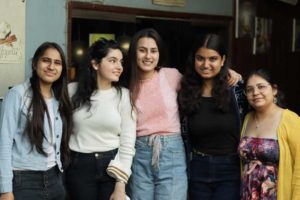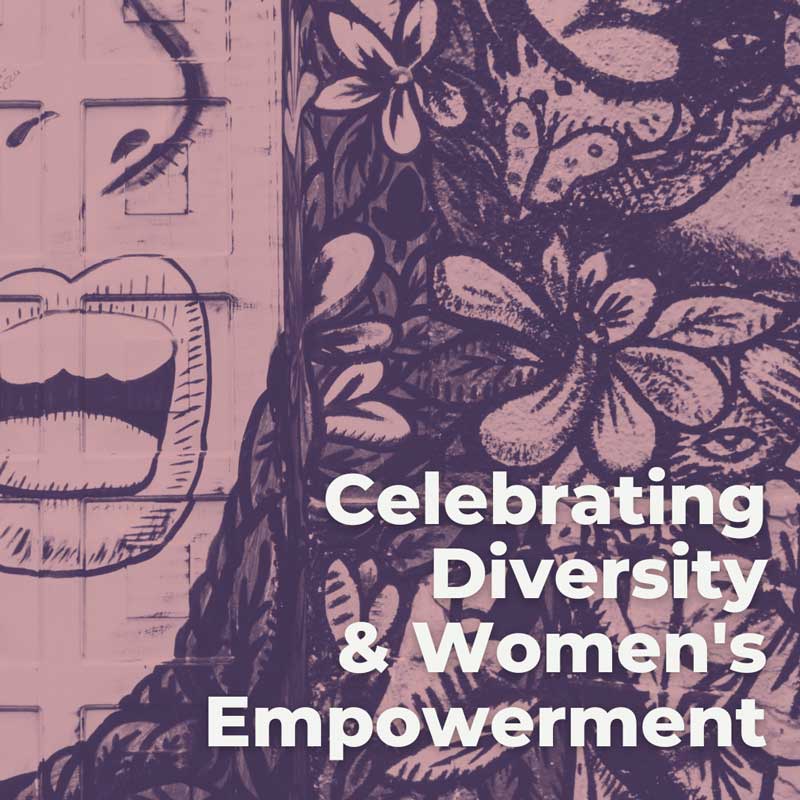Overview:
- The legal profession globally is witnessing a surge in female representation, challenging traditional norms.
- In India, female attorneys navigate between traditional gender roles and modern professional demands.
- Brazil showcases a diverse legal landscape, with women breaking barriers amidst cultural richness.
- Advocating for diversity and women’s empowerment, Girl Power Talk champions inclusivity in the legal community.
The legal profession has undergone significant changes around the world. While the journey to equality is still far from over, it is no longer the old boys’ club it once was. We are seeing more and more female representation across different verticals. For example, in the USA, the number of women lawyers increased by almost eight percent in the past decade, according to the American Bar Association. Similarly, Solicitors Regulation Authority data indicates an increase in women working in law firms from 48% in 2015 to 53% in 2023.

As young female lawyers from India and Brazil, we explore the unique experiences and challenges of being a female attorney in two countries with rich legal traditions and diverse socio-cultural settings.
Recognizing the unique aspects of each context and identifying commonalities is essential for developing targeted strategies to enhance gender diversity, equality, and inclusivity within the legal community.
India: Navigating Tradition and Change
“Being a female attorney in India comes with its own set of challenges, but it’s also an opportunity to reshape norms.” ~ Aashna Duggal
In India, the legal profession has seen a notable influx of women in recent decades. Traditionally, the legal field was predominantly male-dominated, but societal changes, educational advancements, and legal reforms have opened doors for female attorneys. Despite these positive shifts, challenges persist.

One significant aspect is the intersection of tradition and modernity. India’s societal fabric is deeply rooted in traditional gender roles, which can influence perceptions of women in the workplace. Female attorneys often find themselves navigating between the expectations of traditional gender norms and the demands of a modern legal profession. A 2021 Bar and Bench study revealed that women accounted for a mere 2.04% of State Bar Council representatives in India, with only 9 out of 441 representatives being female. Alarmingly, the Executive Committee of the Bar Council of India lacks any female lawyer representation.
Moreover, issues such as gender bias, stereotyping, and the prevalence of a male-centric work culture still pose challenges for women in the legal field. The profession has made strides in promoting gender diversity, but more efforts are needed to address these systemic issues.
Brazil: Breaking Barriers in a Diverse Legal Landscape
In Brazil, the legal landscape is marked by its diversity and the presence of a dynamic and expanding legal community. The country has witnessed a substantial increase in the number of female attorneys, reflecting a broader trend of women entering the legal workforce. Brazil has made progressive legal reforms to promote gender equality, including measures to address workplace discrimination.
Female attorneys in Brazil benefit from a legal framework that recognizes and protects their rights, but challenges persist. The legal profession, like many others, still contends with issues such as the gender pay gap, stereotyping, and limited representation in leadership roles.
One notable aspect is the cultural and ethnic diversity within Brazil, which adds another layer to the experiences of female attorneys. Women from different backgrounds may face unique challenges, and the legal profession must work towards fostering an inclusive environment that accommodates this diversity.
Commonalities and Shared Aspirations
Despite the unique challenges faced by female attorneys in India and Brazil, some commonalities bind their experiences. Both countries share a commitment to advancing gender equality within the legal profession, and women in both nations aspire to break barriers and contribute meaningfully to the field.
Networking and mentorship play crucial roles in supporting female attorneys across continents. Establishing strong networks and mentor-mentee relationships can empower women, provide guidance, and create a sense of solidarity within the legal community. Organizations such as Girl Power Talk facilitate this by providing an inclusive space for women in the legal profession to connect, share experiences, and support each other irrespective of geographical boundaries.
Girl Power Talk: Facilitating Cross-Cultural Learning and Friendship
“The friendships I’ve gained at Girl Power Talk have been invaluable in my professional journey.” ~ Sara Oliveira
Girl Power Talk recognizes that empowering women is not confined by borders; it’s a collaborative effort that thrives on shared aspirations.
The importance of diversity in legal practice cannot be overstated. Girl Power Talk serves as a testament to this, advocating for inclusivity in legal spaces. By bringing together women from different continents, the company showcases the power of varied perspectives and experiences. This diversity is not just enriching for the individuals involved; it is fundamental for creating a legal system that is equitable and just.
As female attorneys in India navigate the delicate balance between tradition and change, and their counterparts in Brazil break barriers in a diverse legal landscape, Girl Power Talk becomes the bridge that connects these journeys. With team members from over 30 countries around the world, we can share stories, challenges, and triumphs, fostering a sense of camaraderie that transcends cultural differences. The supportive community at Girl Power talk goes beyond mere professional connections. It is a space where friendships are forged, and the collective wisdom of diverse professionals across different industries becomes a guiding force.

Moreover, through its international pool of clients, Girl Power Talk provides a unique opportunity for attorneys and law students to explore international law such as United States law. This cross-cultural learning is invaluable for young attorneys as it allows them to broaden their legal horizons, understand different legal traditions, and apply this knowledge to their own practices. Exposure to international law becomes a form of ongoing legal education, offering practical insights that might not be readily available through traditional channels.
This exposure also provides young and aspiring attorneys with a competitive edge in an increasingly interconnected world. It not only enhances their legal skills but also opens doors to international collaborations and opportunities. Girl Power Talk, therefore, becomes a stepping stone for these attorneys to excel in their respective legal careers, contributing to the advancement of the legal profession — and challenging gender bias — on a global scale.
Celebrating Diversity in the Legal Field
Diversity is not just a buzzword; it is a fundamental strength that is essential for ensuring laws and policies reflect the needs and perspectives of all individuals. Girl Power Talk advocates for and exemplifies the importance of diversity and women’s empowerment in its operations, be it the composition of our legal team or the clients we choose to represent. The varied perspectives, experiences, and approaches that people from different continents bring to the table enrich its members and other stakeholders and contribute to a more inclusive and vibrant legal community.
The diverse legal professionals in the global network showcase the resilience, talent, and potential within the legal world. As we continue to champion diversity, let us recognize the transformative power of connecting women in the legal field, breaking barriers, and paving the way for a future where every voice is heard and valued alike.
Conclusion:
Around the world, female attorneys are reshaping the legal profession, confronting traditional norms, and advocating for inclusivity. Through initiatives like Girl Power Talk, a global network fostering cross-cultural connections, women in law find support, mentorship, and empowerment. Celebrating diversity isn’t just a slogan; it’s a fundamental strength shaping a more inclusive and vibrant legal community worldwide.



